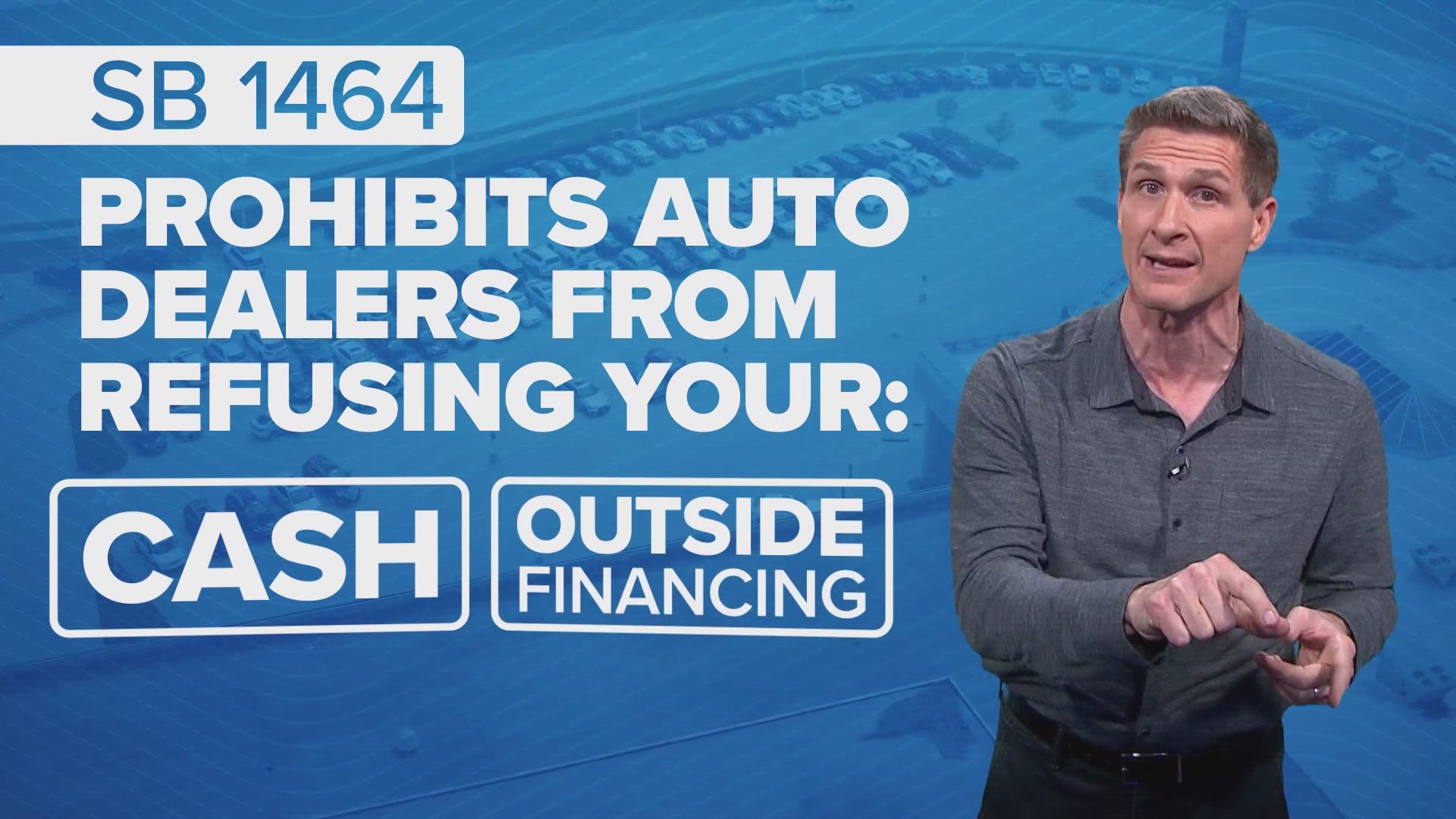AUSTIN, Texas — It’s been a long ride in some relatively expensive cars, but we are finally getting somewhere on the ‘forced financing’ issue in Texas.
I started reporting two years ago — during the pandemic — about an auto-selling trend that some Texans started noticing for the first time. My reports can be seen here, here, here, here and here.
How does 'forced financing' at the dealership work?
Vehicles were in very short supply, so it became more of a competition to actually buy one of them. According to official complaints filed with the state of Texas, many dealers (but certainly not all of them — so shop around) started refusing to let consumers pay cash or use pre-approved financing that consumers had secured from their bank or credit union.
Instead, those dealers insisted buyers use the in-house lenders preferred by the dealership. That allows a dealer to get a lender’s interest rate offer and add on a ‘dealer’s cut’ before presenting the combined total rate to the buyer. That was an added revenue stream for those dealers who employed that tactic.
Some consumers complain they were essentially told to take the in-house rate or lose out on the opportunity to buy the car. And again, with autos in shorter supply, some consumers say they felt like they had no choice but to go along with it. The practice is perfectly legal. There is no law against it in Texas. But that could soon change.
There is no law against it...yet
In a Senate committee hearing (see it here) earlier this month, Senator West told the committee, “Members this is a statewide problem”. Senator West was before the committee to discuss Senate Bill 1464, which he filed to address the issue after seeing my series of reports on the topic.
Senator West’s proposed bill would prohibit auto dealers from refusing a consumer’s cash payment or third-party financing. It would also prevent a dealer from raising the price of the vehicle if a consumer pays with cash or third-party financing, something some Texas consumers have also complained is happening in the marketplace.
Senator West told the panel of senators, “We need to make certain consumers have the right to finance vehicles using the financing of their choice”.
Since this bill was crafted specifically because of an issue brought to the forefront by Right on the Money reports, I also emailed a letter to every senator on that committee to answer some of the specific questions they had in the hearing, and to share some consumer complaints that have been received by the Office of Consumer Credit Commissioner following my earlier reporting.
In overwhelming and bipartisan fashion, the committee sent the bill to the full Texas Senate, where it passed last week, again overwhelmingly and by a mix of Republicans and Democrats. Now, all eyes are on the Texas House of Representatives, where the bill must pass before it would be able to get to Governor Abbott’s desk.
Auto loans getting expensive
Meantime, we all know that the Federal Reserve has been raising interest rates to slow the hot economy and that has been really hiking auto loan rates. Here’s a look at how rates have jumped for 4-year, 5-year, and 6-year auto loans.
But Lending Tree recently sent me a heads-up about a study they were publishing that shows car buyers can save more than $5,000 on their loan notes just by shopping around for the best auto loan offers. Again, that is assuming you are doing business with one of the many dealers in Texas who are not engaging in forced financing at the dealership, and are still allowing consumers to bring in that outside financing.
Consumers need all the savings they can get. Bankrate recently found that Texans have the highest unpaid auto loan balances in the country, one of the highest average monthly car payments and among the highest rates of auto loan delinquencies.

